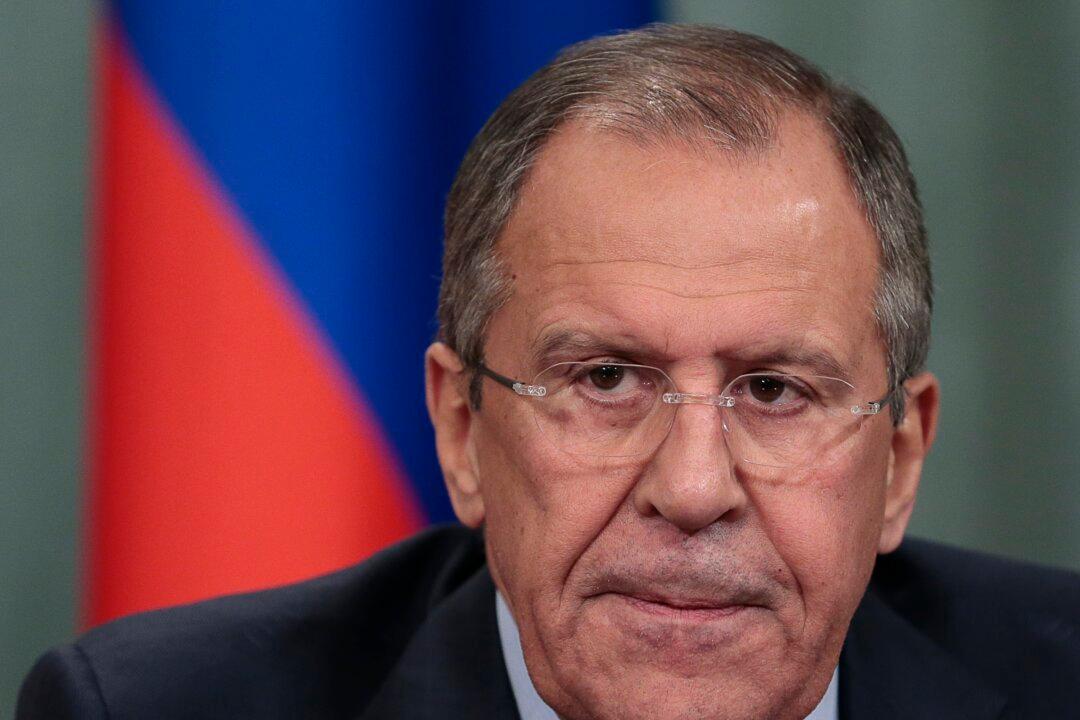GENEVA—Russia said Tuesday it supports the inclusion of all opposition parties in Syrian peace talks, including two hard-line Islamic groups, as President Bashar Assad’s troops captured a village north of Syria’s largest city with the aid of Russian airstrikes.
Syria’s official SANA news agency reported the capture of Hardatneen, north of Aleppo, as U.N. envoy Staffan de Mistura kicked off a second day of peace talks in Geneva by hosting a government delegation for the second time since Friday. He planned a separate meeting with the main opposition group later in the day.
Russian Foreign Minister Sergey Lavrov, whose country has been a pivotal player along with the U.S. in helping bring about the talks, told reporters in Abu Dhabi that Russia believes all opposition parties in Syria except for the Islamic State group and the al-Qaida-affiliated Nusra Front should take part in the negotiations.
He said the inclusion of the Army of Islam and Ahrar al-Sham, two hard-line Islamic groups, reflects the “realistic stances” on the ground in Syria. He added, however, that their participation in Geneva does not mean “recognition of them as legitimate partners” for peace.
Lavrov reiterated Moscow’s view that the two Saudi-backed factions “are considered terrorist groups,” and that one or two individuals from the two who are at the peace talks must agree to end all killings and respect Syria’s territorial integrity.
The peace talks “should represent all parties of Syrian society,” he said, adding that he hoped the presence of two groups representing the opposition would not derail the talks. He called on de Mistura, who is hosting the talks in Geneva, to deal with all parties in a balanced way.
His remarks came just days after the Syrian government said it would “never accept” the inclusion of the two groups in the talks.
Moscow has been a key ally of the government throughout the five-year uprising and began launching airstrikes on behalf of Assad’s troops four months ago.
The strikes have allowed Syrian troops to advance on a number of fronts. The Britain-based Syrian Observatory for Human Rights, an opposition group that monitors both sides of the Syrian conflict through activists on the ground, said government troops have captured three villages near Aleppo since Monday, opening access to an important supply route into the city.





